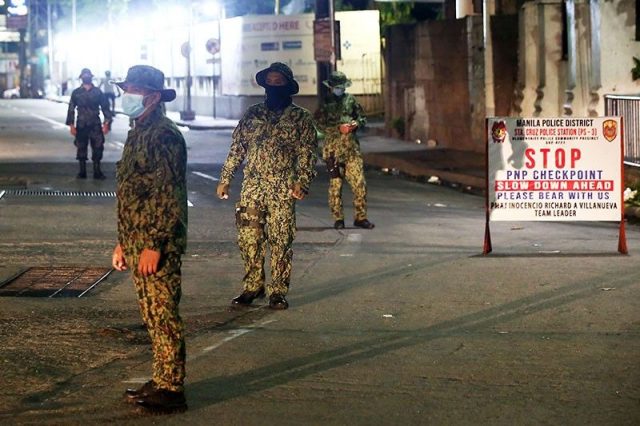
Some Filipinos commented that they were no longer surprised that the Philippines ranked lowest in terms of government response to the coronavirus pandemic among member states of the Association of Southeast Asian Nations.
ASEAN Studies Center’s “The State of Southeast Asia 2021 survey report” showed that a majority or 53.7% of its Filipino respondents from a more specialized cohort than those in national surveys disapproved of the Duterte administration’s handling of the public health crisis.
At least 17.9% of the respondents said that they “strongly disapprove” of the government’s response towards the COVID-19 pandemic while 20.9% were “neutral” about the issue.
Around 25.4% were okay with how the crisis is being handled.
Rounded up, 19.4% approved of the Philippine government’s COVID-19 response while 6.0% strongly approved.
Reports said that the study had 1,032 specialized respondents from ten ASEAN member states, with 6.5% respondents from the Philippines.
Those who took part were from the academe, think tanks or research institutions at 45.4%, those from government at 30.7%, civil society, non-government organizations or media at 9.3%, business or finance at 9.2% and regional or international organizations at 5.3%.
The survey was held from Nov. 18, 2020 to Jan. 10, 2021.
The ASEAN country with the highest approval in terms of government response to COVID-19 pandemic was Singapore at 32.7%, followed by Vietnam at 31.1% and then Thailand at 7.4%
Gov’t vs. COVID-19
When the report reached the Philippines, some Filipinos commented that the country’s ranking was no longer a surprise to them. They then recounted instances which they claim had a part in the government’s low score.
“Not even surprised,” a Twitter user said in response to the news item.
“Are we even surprised at this point,” another online user wrote.
“PH, most of the time late ang respond on every issue regarding COVID-19, lagi pong waiting. Time to change the captain ball ng DOH,” a different Filipino wrote, referring to Health Secretary Francisco Duque III who has since faced many resignation calls since the COVID-pandemic began.
“Nauuna kasi yabang bago gawa,” another Twitter user wrote with an eyeroll emoji. The tweet was accompanied by a news report of Duque claiming that the Philippines was a “model country” in fighting the pandemic back in February 2020.
Nauuna kasi yabang bago gawa
pic.twitter.com/21URnEfYm1
— Marnie Woods (@dailydoseofcare) February 11, 2021
Another Twitter user shared screengrabs of some news reports when President Rodrigo Duterte expressed his reluctance to impose a travel ban on China, the reported place of origin of the COVID-19, at the beginning of 2020.
He was also criticized for not taking the virus seriously.
The president’s critics cited his joke such as when he claimed he would “slap” the virus and for his comment that the country will be sprayed with “pesticide” to rid of COVID-19.
PH President Duterte. #DuterteLegacy #COVID19 #WeNeverForget pic.twitter.com/WV22cRTA7x
— Lee (@meleeseven) February 11, 2021
Last September, the Palace defended the government when the Philippines placed low in a scientific study showing how countries had fared in terms of suppressing COVID-19.
READ: Palace claims COVID-19 response was ‘science-backed.’ Was it?
The Lancet, a peer-reviewed medical journal, placed the Philippines at the 66th spot among 99 countries in its study and said that the country exhibited “medical populism” which was a factor in its failure to control the pandemic.
Medical populism was defined as “simplifying the pandemic by downplaying its impacts or touting easy solutions or treatments, spectacularizing their responses to crisis, forging divisions between the ‘people’ and dangerous ‘others.'”
Malacañang then said that the government’s initiatives are guided by “science and hard data” but social media users criticized its military-based solutions and supposed misplaced priorities such as the passing of the anti-terror law and shutdown of broadcasting giant ABS-CBN.
Meanwhile, ASEAN Studies Center in its 2021 report said that the Philippines needed to encourage more science and health experts “to contribute to public policy discussions” and for government to heed their advice.
The respondents also said the country should provide better financial relief and subsidies to the millions economically affected by the pandemic.
In addition, Philippine government officials should also lead in following the minimum health protocols instead of flouting or disregarding them.









